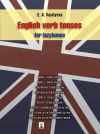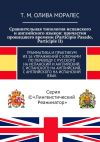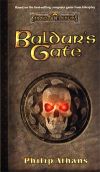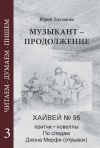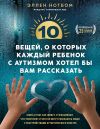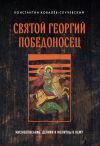Текст книги "Participle, Gerund and Infinitive"
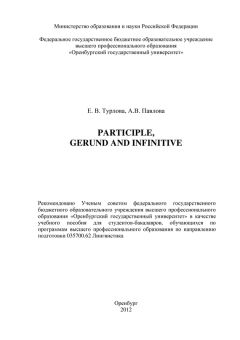
Автор книги: Евгения Турлова
Жанр: Учебная литература, Детские книги
сообщить о неприемлемом содержимом
Текущая страница: 2 (всего у книги 8 страниц) [доступный отрывок для чтения: 2 страниц]
2.5 Syntactic functions of Participle II
Participle II has the following functions in the sentence:
1) an attribute:
• Look at that broken cup. Посмотрите на разбитую чашку.
• Look at the cup broken by you. Посмотрите на чашку, разбитую Вами;
2) the predicative:
• Не felt disappointed. Он чувствовал себя разочарованным;
3) an adverbial modifier:
a) of time:
• When asked he always helped me.
Он всегда помогал мне, когда я его просил;
b) of cause:
• Occupied by his thoughts he didn't hear my question. Занятый своими мыслями, он не слышал моего вопроса;
c) of condition (usually with the conjunction if or unless):
• If asked he always helped me.
d) of concession (usually with the conjunction though):
• Though occupied by his thoughts, he willingly answered my question.
e) of comparison:
• Не looked at me, as if bewildered by my question. Он посмотрел на меня так, как будто был очень удивлен моим вопросом;
4) a part of the complex object:
The complex object consists of a noun in the common case or a pronoun in the objective case and participle II. The complex object with participle II is used after:
– verbs with a causative meaning (to have, to get, to make) denoting that something is done or made for the benefit of the person expressed by the subject:
• I had my hair cut. Я постриглась. (Меня постригли)
Negative and interrogative sentences are formed with the help of the auxiliary verb do.
• When did you have your hair cut?
Когда вы постриглись?
– the verb of sense perception (to see, to hear, to feel, to find):
• When I returned I found her gone.
Когда я вернулся, я обнаружил, что она ушла;
– the verbs denoting wish (to wish, to like, to want, to prefer):
• I want the letter posted at once.
Я хочу, чтобы письмо отослали почтой немедленно.
Table 5 – Syntactic functions of Participle II


Exercise 1. Read and translate the following sentences. Pay attention to the function of participle II.
1. This speech was received with great applause, mixed with the cries of: "That's the talk!" 2. Mr. Wren, startled, dropped his hat. 3. Rosie looked round with delight at the great dark smoky house, crowded to the ceiling with the inhabitants of South London. 4. Carried away by the melody, Marie went so far as to dance a step or two herself. 5. "Let's skate again," she said, "shall we? With crossed hands." 6. He seemed calmed and at peace. 7. I took her hands in mine: she held my sprained wrist gently. 8. These two people seem extraordinary interested in Mon Repos. 9. She seemed pleased at Jane's graciousness and complimentary sayings. 10. Surrounded by difficulties and uncertainty, he longed for Christine.
Exercise 2. Complete the following sentences using participle II in the function of an attribute (A), a predicative (B), an adverbial modifier (C).
A. 1. Here is the letter… 2. Where is the article …? 3. Everyone approved of the report… 4. This is the house … 5. They reached the village…
B. 1. "I felt utterly …" 2. He looked very … 3. He was angry because his plan was not… 4. Why should you look…?
C. a) of time:
1. He was always angry when … 2. The children won't stop quarrelling until… 3. He will go on reading the book until… 4. He was always polite when…;
b) of cause:
1. He took leave of them … 2… he couldn't say a word. 3… he opened his eyes wide. 4… she dropped her eyes;
c) of condition:
1. He will tell you everything if… 2. He will read late into night if … 3. He will speak for hours on end if…;
d) of concession:
1. Though … he tried to answer the question … 2. They went on running, though …;
e) of comparison:
1. He looked up as if … 2. He stood without moving as if… 3. He kept silent as if… 4. She stared at me as if…
Exercise 3. Read and translate the following sentences. Analyze complex objects with participle II.
1. Martha pulled herself free again, and said, "I don't want to have my hair cut." 2. I'll have your things brought up and unpacked at once. 3. She found herself so much disturbed by this visit that she could hardly find tongue to answer his questions. 4. He saw the question written in her wondering ashamed face. 5. And then I heard a box kicked across the floor, and the next moment Rob came into the bedroom. 6. Harold put his hand to her face and felt it flushed. 7. When Stella comes out I shall tell her I won't have my hair cut. 8. Never, never had I heard it sung so beautifully. 9. Almost the entire school saw the box delivered and all awaited the outcome with ill-repressed anticipation.
Speech Exercises.
Exercise 4. Make up sentences, using the expressions given below. Note the diversity of the functions of participle I in the sentence.
A. 1. living on the floor above; running parallel to; standing in the shade, leading to; rolling down her cheeks, sitting quietly in the corner.
2. a) while watching TV; while skating; having arrived; having ordered; glancing up at the clock; when talking about his books;
b) having quarreled; wishing to get home in time; having nothing to do; realizing; working regularly;
c) smiling and waving her hand; glancing at each other; peering through his spectacles; frowning at her; rising politely; leaping from the taxi;
d) as if not seeing; as if trying; as if hiding; as if listening; as though admiring;
e) though approving; though looking pale; though regretting; though embarrassed; though moving slowly.
3. generally speaking; taking everything into consideration; putting it mildly, judging from experience; strictly speaking.
B. 1. I him running; her saying; the clock ticking; the children laughing; somebody talking; you sitting; myself blushing.
1) they… talking; he… walking, he… driving; they…exchanging glances; she … walking.
2) the hour being early…; the clock striking eight…; it being a rainy day …; important point settled …; his eyes snapping at him …
Exercise 5. Make up sentences using the expressions given below. Pay attention to the diversity of the functions of participle II in the sentence.
1. a puzzled look; greeted by everyone; surrounded by his friends; written in block letters; received by yesterday's post.
2. seemed surprised; looked bewildered; sounded annoyed; felt disappointed; looked relieved.
3. a) each lost in her thoughts; startled and annoyed; carried away by his memories;
b) when asked; until punished; when surrounded by difficulties; when embarrassed; when recorded;
c) as if startled; as if annoyed; as if deeply impressed; as though finished.
Exercise 6. Develop the following sentences into situations. Read the suggested sentences containing the participle. Then make up at least one sentence to specify, prove or refute the given one. Follow the models.
Model: The boy ran out of the room, slamming the door behind him. – The boy ran out of the room, slamming the door behind him. He was angry with his sister and did not want to play with her.
1. She sat, leaning her head on her hands. 2. He smiled, noting the astonished expression on the faces of the others. 3. While working in the reading-room I take no notice of the time. 4. A puzzled look crossed his face. 5. Going home from school Mary ran ahead of her mother, swinging her bag and touching every lamp-post. 6. The girl sat over an algebra problem, sucking her pencil gloomily.
Model: I heard the telephone ringing and went to answer the call. – I heard the telephone ringing and went to answer the call It happened to be a friend speaking. I heard her voice trembling and understood that something was wrong.
1. They heard the door bell ringing. 2. She seemed slightly put out by my question, then she smiled. 3. I felt him looking at me now and then. 4. Mary thought she was grown up. Her chief theme at home was: "Mummy, when can I have my hair cut?" 5. She sat with her eyes fixed on the ground. 6. She could be heard chattering with her friend hour after hour.
Model: She was walking slowly, a faint smile twitching the comers of her mouth. – She was walking slowly, a faint smile twitching the corners of her mouth. Evidently she was remembering something very pleasant.
1. The child began to cry and sat dabbing blindly at the egg with her spoon, big tears rolling down her face on the plate. 2. She paused, her gaze questioning him. 3. The examination being close at hand, he began to worry. 4. His curiosity having got the better of fear, the child came up to the dog.
Exercise 7. Think of the situations where you can use the sentences given below.
1. He could feel his heart beating. 2. She came at last, hurrying across the road with her suitcase in hand. 3. He kept his eyes fixed on mine till I had finished, and then he turned away. 4. It set my heart leaping. 5. I heard him pacing up and down in his room long after the rest of the family had gone to bed. 6. At this instant my attention wandered to the four people sitting at the next table. 7. "Don't thank me," she said, folding her arms and frowning at him. 8. "It's marvelous, it's terrific," he said, announcing the news to his sister. 9. They went happily down the road, boasting, chattering, tired and relaxed and utterly happy. 10. He liked the way she had her hair arranged. 11. He laughed, then was silent. The conductor had appeared, greeted by mild hand clapping. 12. Nick looked on at the moon, coming up over the forest. 13. For some minutes they stood at the door shaking hands with their host. 14. Casting a look at her husband and his newspaper, she sniffed, and withdrew. 15. She sat dumbly through lessons, her head splitting. 16. He seemed making some signs to me. 17. The girl suddenly went crimson, blushing to the roots of her hair.18. Frankly speaking, I was wrong. 19. Putting it mildly, she is rather silly.
Exercise 8. Translate into English. Pay attention to the use of Participle I and Participle II.
1. Она прошла мимо него, делая вид, что смотрит перед собой. 2. Джим надел шляпу и вышел, хлопнув дверью. 3. Обернувшись, он уставился на меня, но я понял, что он меня не видел. 4. Обычно, проводив пациента до двери, он сразу шел обратно к своему столу. 5. Мисс Вотерфорд была хорошей хозяйкой и, видя мое замешательство, подошла ко мне. 6. Сдерживая слезы, так как она знала, что он их терпеть не может, она просила его быть благоразумным. 7. Какую ты ведешь роскошную жизнь, валяешься в постели до одиннадцати. 8. Дверь случайно оказалась полуотворенной, и я слышала, как она разговаривала с кем-то в коридоре.
9. Она могла чувствовать, как у нее сильно дрожат колени. 10. Я заметил, что на стене висят несколько картин, которых я никогда не видел раньше. 11. Через секунду Льюис выскочил из машины, его глаза горели от возбуждения. 12. Я увидел, как у него на лбу выступил пот. 13. Она уселась в кресло и сидела, наблюдая за ним. 14. Проходя мимо Театра Комедии, я случайно взглянул вверх и увидел облака, освещенные заходящим солнцем. 15. Я быстро взглянул украдкой на Марта и Джерри, сидящих в первом ряду, и увидел, что они улыбаются. 16. Он ехал медленно, наслаждаясь тишиной вечера. 17. Я услышал, как его голос дрожал от гнева. 18. Я видела, как она убежала в том направлении примерно четверть часа тому назад. 19. Издалека он увидел, как аптекарь ждет его на пороге с удивленным выражением на лице. 20. Освальд мог чувствовать, как бьется его сердце. 21. Я должен ее вылечить. 22. И вечером после чая…они сидели в гостиной, дамы вязали, а доктор Мэкфайл курил свою трубку.
Exercise 9. Translate the following sentences into Russian. Pay attention to Objective participial constructions.
1. Иностранные туристы с интересом наблюдали, как над Невой понимают мосты. 2. Никто не видел, как украли документ. 3. Пассажиры наблюдали, как взвешивали их багаж. 4. Кто-нибудь видел, как принесли этот пакет? 5. Я был так взволнован, что не заметил, как забили шайбу. 6. Наутро я обнаружил, что стекло в машине разбито, а замок взломан. 7. Я не хочу, чтобы этот вопрос обсуждался на вашем заседании. 8. Почему ты оставил машину грязной? 9. С удивлением она нашла посуду всю вымытой, а кухню убранной.
Exercise 10. Find in the sentences below the ones containing the constructions with have + Participle II, translate them into Russian.
1. They had coffee brought out into the garden after lunch. 2. They assumed that he would be a candidate for the Mastership and they believed that they could get him elected. 3. "God, girl," he said, "haven't you got the kettle on yet? I thought you'd have tea made by now". 4. He was an observant and suspicious man, and he might have had his suspicions sharpened by unhappiness. 5. You'll never guess where I had the suit made. 6. But even if you work hard it takes a long time to write a novel. And only then you may have it published. 7. He was going to have his car fixed in a garage and come back to pick it up in a few days. 8. The viceroy proposed to have James's horse whipped through the street of Naples. 9. He took deep interest in the subject, even going so far as to have lies spread about it. 10. The organization had both men toplisted in their files.
Exercise 11. Translate into English the sentences with the construction have + Participle II.
1. Вам здесь почистят костюм очень быстро и хорошо. 2. Директор хочет, чтобы это письмо напечатали и отправили факсом немедленно. 3. Интересно, кто предложил отправить эти документы авиапочтой? 4. Нельзя ли подогреть кофе и сделать бутерброды? 5. Через Интерпол его арестовали в Неаполе, когда он собирался вылететь на Сицилию. 6. Мы не стояли в очереди, мы заказали все билеты заранее. 7. Должен вам сообщить, что места в гостинице для вас зарезервированы. 8. Галстук у него не завязан, пуговицы не застегнуты. 9. Хотелось бы знать, когда отрегулируют эту антенну. Совершенно невозможно смотреть этот канал. 10. Он развесил фотографии своего футбольного кумира во всех витринах своего магазина. 11. К весне она отремонтировала всю квартиру, поменяла обои, заменила сантехнику. 12. Он осмотрел всех лошадей в конюшне и приказал седлать серого жеребца.
Exercise 12. Find in the sentences below the ones containing Nominative Absolute Participial construction, translate them into Russian.
1. His attention caught, he did not hurry to leave. 2. He lunched at the boarding house, the meal of the day being pot roast and noodles. 3. The missing archives found, he dedicated his life to restoring and cataloguing them. 4. Like his brother he was intelligent, his eye full now of the aggression brought on by the shooting, the narrow jaw jutting, the will to fight shouting from every muscle. 5. His brother, now reigning Louis XIV was born at twelve, his father being at dinner. 6. The moonlit road was empty, with the wet snow blowing past. 7. Jane stood there, with her cheeks burning, her dark eyes looking before her. 8. And then came the final moment, with the guards coming for her. 9. She was a woman of about fifty with thin gray hair hanging from under an old hat. 10.He was sleeping in his office, with his head pillowed on his arms and with his face turned away.
Exercise 13. Translate into English the sentences with the construction Nominative Absolute Participial construction.
1. Так как было поздно, осмотр достопримечательностей пришлось отложить на утро понедельника. 2. Ветер стих, они отправились на прогулку. 3. Наступило 14 апреля, они уехали. 4. Если погода позволит, мы выйдем на шхуне в море уже завтра. 5. Наконец наступила развязка, полицейские добрались до него. 6. Письмо лежало на столе, причем печать сорвана, конверт порван. 7. Самолет пронесся очень низко, шум от двигателя везде: на лужайке, в саду, в доме. 8. И они уходят в черную ночь; дождь навсегда смывает память о них.
Exercise 14. Find in the sentences below the ones containing Nominative Absolute construction (without a participle), translate them into Russian.
1. I hovered at the edge of things, hands in pockets, hair-tousled, local paper under arm, looking, I hoped not too English. 2. Faint with hunger, Jim swayed against the door frame. 3. James set off, his hands deep in his pockets. 4. The manager listened to the report, head down, motionless. 5. She was sitting and watching the fire, Jim's arm round her shoulders. 6. Manson went down, his head full of joyful excitement. 7. Summer over, birds are flying to the South. 8. Then he started out, bag and overcoat in hand, to get his cup of coffee. 9. She looked quite a different person now, her face pale, her smile listless. 10. A momentary hush; the orchestra leader varies his rhythm obligingly for her, and there is a burst of chatter.
Exercise 15. State the syntactical functions of the participles in the following sentences and translate the sentences.
1. Being a mean person, he never spent more than he had to. 2. They debated for hours without a decision being taken. 3. He was a short bespectacled man entering a grey and paunchy middle age. 4. Unless changed, this law will make life difficult for farmers. 5. There being no further business, I declare the meeting closed.
Exercise 16. Translate into English using Participle I or II wherever possible.
1. Она молчала, словно ожидая, что её зададут другой вопрос. 2. Он смотрел на мальчика, сидевшего на стуле в углу комнаты. 3. Мальчик, который сидел на стуле в углу комнаты, уже ушел. 4. Так как он плохо себя чувствовал, ему пришлось остаться дома. 5. Он вспомнил об этом, когда был дома. 6. Когда её попросили, она дала свой адрес. 7. Я слышал, как назвали мою фамилию. 8. Можно для меня вызвать такси? 9. Не зная ответа, он стоял, не говоря ни слова. 10. Он смог бы сделать гораздо больше для вас, если бы он был лучше информирован. 11. Не желая быть первым, я замедлил шаги. 12. Если обстоятельства позволят, я приеду к вам осенью. 13. Выпив чашку чая, она почувствовала себя гораздо лучше. 14. Он читал газету лежа на диване. 15. Сделав много упражнений, мы перестали делать ошибки на употребление причастий.
Exercise 17. Translate into English, using the Objective or the Subjective Participial Construction.
1. Была тихая летняя ночь. Мы сидели в саду и наблюдали, как луна медленно поднимается из-за деревьев. 2. Мы услышали, что кто-то поет вдали. 3. В детстве я часто слышал, как моя мать пела эту песню. 4. Мы увидели, что по дорожке сада идет сын нашего соседа. 5. Мы не видели его уже много лет, но часто слышали, как его имя упоминалось в доме его родителей. Мы не раз слышали, как его мать говорила о нем и его работе.
Exercise 18. Translate into English, using the verb to have or to get followed by the Objective Participial Construction.
1. Я переделала свое зимнее пальто. 2. Когда вы, наконец, настроите свой рояль? Он совсем расстроен (to be out of tune). Я не починил вчера часы, так как мастерские были закрыты. Когда вы оклеили комнату? 5. Вам уже побелили потолок? 6. Где вы снимались? 7. Вам следует переплести свои книги 8. Где вы делали себе это платье? 9. Я выкрасила свое платье, и теперь оно совсем как новое (выглядит совсем новым). 10. Где вы починили велосипед?
Exercise 19.
1. State the syntactic function of the verbal in the following sentences.
2. Which of the four men smoking by the fireplace is Den?
3. Having got what he wanted, he took his hat and went away.
4. I hope you’ll write son, explaining your intention.
5. Being asked what he thought of the innovation, the builder said he approved of it.
6. He spoke like a man, having his own opinion of everything.
7. And saying so, he left the room.
8. Having been examined by the customs, the goods were let through.
9. There is a covered passage connecting the kitchen with the garage.
10. Frankly speaking I can’t approve of his behavior.
11. The dinner was cooked as if waiting for very important guests.
12. It was a letter written by someone in close touch with Anna.
13. When invited he always comes on time.
14. She was deeply impressed by his words.
15. He took part in the conference invited by his fellow-worker.
16. Though astonished by her interest in the details of the accident I went on with the story.
17. The doctor looked worried.
18. She screamed as if badly hurt.
19. The film shown in the cinema is worth seeing.
20. When shaken this piece of metal produced a mysterious sound.
21. Her spirit, though crushed, was not broken.
Exercise 20. Supply Participle I or II for the verb in brackets.
1. He leaned across the table (twist) a bit of bred off the roll on his plate.
2. (admit) she loved him she was frightened.
3. “This is the day when I meet a lot of friends I knew formally”, said Mrs. Oliver, (go) into the house and (lead) into a small living-room.
4. (be) an orphan at six, he was brought up by a distant relative.
5. (spend) a year at home she returned to Antibes with her husband.
6. It was an old man (wear) glasses.
7. (leave) a nice sum of money by her parents she decided to live in Paris.
8. (get over) her immediate rage she was regarding the situation with distance.
9. He wants to write a book (sum up) his impressions of the trip.
10. The witness left the box (tell) everything he knew.
11. She looked (annoy).
12. When (ask) to take part in the discussion he refused point-blank.
13. They turned into the large hall beautifully (light up) with Chinese lamps.
14. She couldn’t agree to her husband’s suggestion though (move) deeply by these woods.
15. He often comes to the beach accompany) by a black terrier.
16. The snow (clear away) only yesterday began to fall again.
17. On the door (tie) to the letter-box was a sheet of paper with his name on it.
18. He didn’t even glance at the (murder) man.
19. When (put) to vote the resolution was adopted.
20. I hate people who cry over (split) milk.
Внимание! Это не конец книги.
Если начало книги вам понравилось, то полную версию можно приобрести у нашего партнёра - распространителя легального контента. Поддержите автора!Правообладателям!
Данное произведение размещено по согласованию с ООО "ЛитРес" (20% исходного текста). Если размещение книги нарушает чьи-либо права, то сообщите об этом.Читателям!
Оплатили, но не знаете что делать дальше?